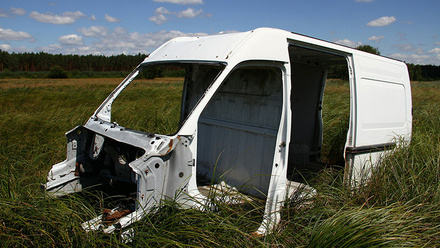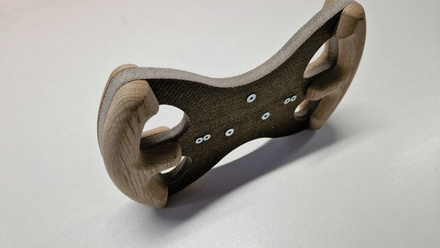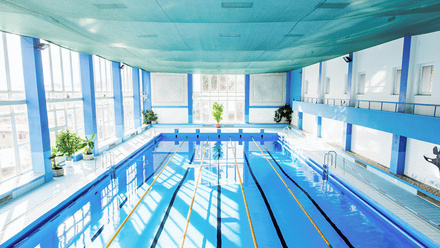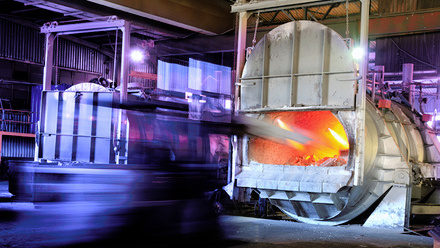IOM3 Sustainable Future Awards finalists announced
We showcase the 2023 finalists and their projects ahead of the awards ceremony in November.
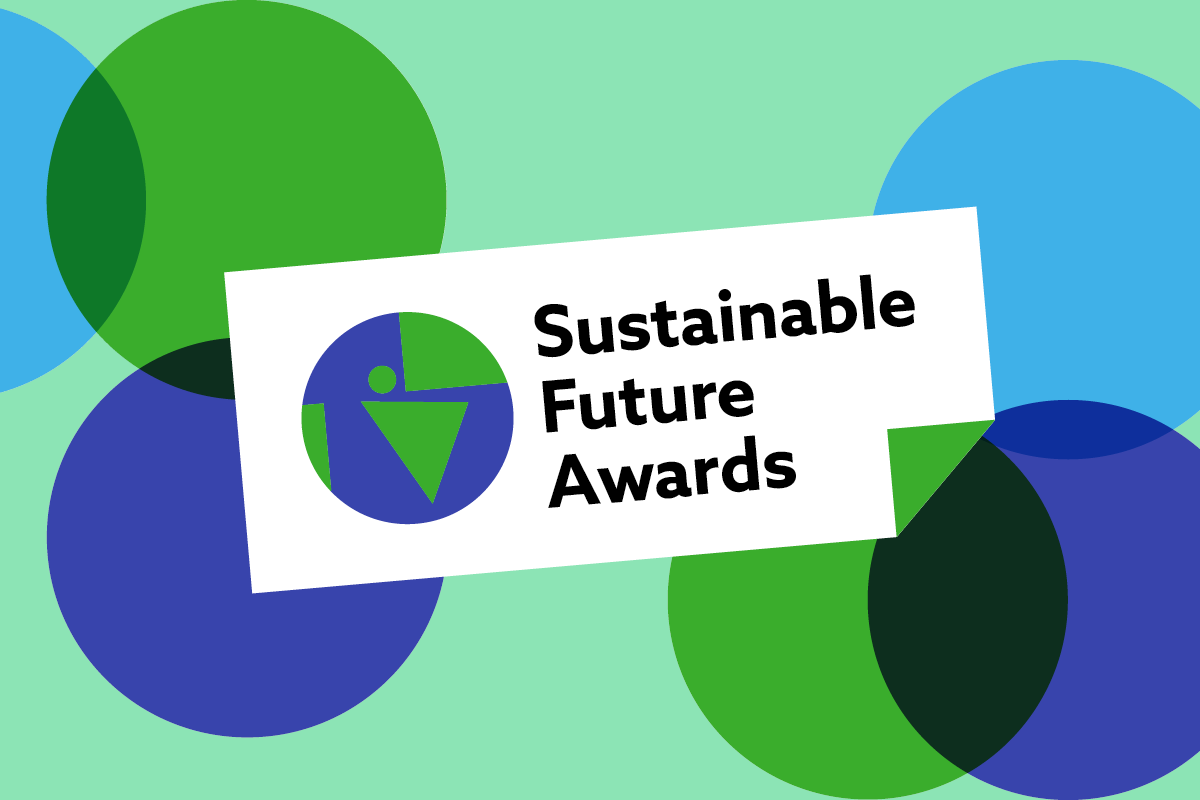
Creating a sustainable future is arguably the greatest challenge of our time. Our current and future society depend fundamentally on materials that are responsibly extracted. The IOM3 Sustainable Future Awards offer a platform for knowledge exchange, promoting organisations and individuals that are advocating the need for greater circularity in the extraction, processing and use of natural resources.
Adjudicated by an independent panel of experts to ensure finalists and winners meet a high benchmark of achievement, the awards will culminate at a ceremony in London on 2 November 2023. Part of the IOM3 Fellows Day, the awards will be presented at the dinner.
Juding panel
Emma Wilcox CEnv FIMMM FCMI CMR
Chair, IOM3 Sustainable Future Awards 2023 | CEO, Society for the Environment
Cynthia Adu CEnv MIMMM
Sustainability Consultant, Accenture
Jude Allan MIMMM MInstPkg(Dip)
Chair of the IOM3 Packaging Group
Sarah Connolly CEng MIMMM
Innovation Technologist, Innovate UK
Roger Harrabin
Energy and Environment Analyst, BBC
Mark Miodownik MBE FREng CEng HonFIMMM
Professor of Materials & Society, UCL
Robert Quarshie
Head of Materials and Nanotechnology, The Knowledge Transfer Network
Category: Enabling Net-Zero: Sustainable Materials & Technology
ARUP, SCS Railways JV, University of Leeds
As part of the biggest infrastructure project in the UK – High Speed 2 (HS2) – enormous quantities of material are being excavated, approximately 5,000,000m3. The majority of it is London Clay and offsite disposal leads to significant CO₂ emissions and costs.
An innovative approach for high-value repurposing means the clay can be processed and calcined for use in HS2 project concrete mixes as a Portland cement replacement. The Portland cement in these mixes can be replaced with up to 70% calcined London Clay, while maintaining the onerous requirements for 120 years’ service life.
The proposed method reduces the carbon footprint of the significant concrete volumes that are going to be cast for HS2 and that of the excavated clay disposal operations by up to 70%.
Additionally, this technology can be transferred to other major infrastructure projects or mining operations across the UK where clayed spoils are generated, with immense potential to reduce waste generation, while promoting sustainable construction materials and self-sufficiency of the construction sector.
Cambond Ltd, Xiaobin Zhao
Cambond has developed a patented bio-based technology platform to transform low-carbon biomass, such as from a brewery’s spent grain or algae from lakes and the sea, into bio-based and biodegradable adhesives.
The products can be used in a range of industries, including packaging, automotive and construction. The key benefits include biodegradability, compostability and reduced environmental impact. The manufacturing process is simple, clean, free of toxic waste and releases 80% less CO₂ during manufacture.
Importantly, CAMBOND bioresin eliminates the use of toxic formaldehyde. While CAMBOND bio-adhesive can bind abundant agricultural waste fibre such as straw, linseed, hemp and bamboo to make light and strong biocomposites for pallets and packaging. In addition, CAMBOND green chemistry can help reduce and repurpose waste streams from the Foundation Industries to improve natural resource efficiency and help achieve a net-zero future.
TISICS
Metal composites company TISICS is using advanced materials to develop greener, cheaper, aircraft and spacecraft components to accelerate the transition to net-zero.
In partnership with Safran Landing systems, it has developed the world’s largest, net-shape, metal composite component for civil aircraft. Backed by a £2.5mln R&D contract from UK Research and Innovation and Innovate UK, LightLand is a lightweight, full-scale, landing gear, side-stay for wide-body aircraft fleets.
The component has passed a major milestone, having been tested to 625t in compression – 50% more than the equivalent steel component it replaces and 50% lighter. This technology could be flying in two years, and if applied to the fleet of current aircraft, could save 9Mt of CO₂ emissions per year – equating to a yearly CO₂ emissions saving of 60kt per aircraft.
LightLand started out with the ambition to change one part of the aircraft landing gear system, but through a growing need to accelerate the industry’s JetZero ambitions, TISICS have set their sights on revolutionising the industry.
Adamantia Lazou, Jafar Safarian and Leiv Kolbeinsen, Norwegian University of Science and Technology
Mass production of metals and materials requires chemical or metallurgical processing that often emits solid waste. Meeting environmental goals requires rethinking many production lines to respect the transition to a circular economy and low-carbon emissions.
Currently, red mud, which is called bauxite residue in dewatered form, is generated through the production of alumina (feedstock for aluminium production) from bauxite ores through the Bayer process. Reviving the old Pedersen process in a modernised form to produce alumina is more material efficient and flexible, and it can holistically utilise raw materials and avoid waste production.
A modern Pedersen process combines a high-temperature process with an aqueous treatment to achieve the mentioned goals. The present nomination refers to PhD work focused on modernising and optimising the high-temperature step and using hydrogen to establish a CO₂-free alumina production process. It seeks to increase overall sustainability, while understanding limitations, potentials and the mechanisms of government phenomena.
Tokamak Energy
Tokamak Energy is developing fusion power as a clean, green, energy source. Its route to fusion is Magnetic Confinement Fusion, where a plasma made of isotopes of hydrogen is confined in a spherical shape and heated to extreme temperatures until fusion occurs. This process releases the most energy dense source of power – four times more than fission and around four million times more than coal.
Tokamak Energy was founded on the use of high-temperature superconductors. This technology has become the cornerstone of a smaller and more powerful tokamak design –the Spherical Tokamak – which enables smaller plants to be prototyped and produced much faster than conventional designs.
As this technology has further developed, other materials challenges have arisen. These have been tackled with the spirit of low-waste and low-emissions, such as by using only low-activation materials. The energy produced will be used to decarbonise electricity production, as well as industrial heat applications such as desalination and hydrogen production.
Kelpi
Kelpi is harnessing the properties of seaweed to create a compostable, marine-safe, low-carbon, bio-based packaging.
Using seaweed and other plant-based feedstocks to develop coatings for paper, card and other substrates, this packaging in many cases can even exceed the performance of fossil-fuel plastics. What makes it unique is the material's ability to provide a long-term water barrier, in addition to resistance to moisture, oxygen, acid and grease.
Kelpi began with its three co-founders and one employee, based in a lab at the University of Bath, UK. Now, three years on, the team has grown to a total of 14, with leading scientists from across Europe joining a high-performance, commercially successful company.
In December 2022, the business closed its seed round, securing £3mln in funding, made up of majority venture investment and an Innovate UK grant. This enabled Kelpi to move to its own lab and office space in the centre of Bristol, increasing its research and development capabilities and scalability.
Category: Circular Economy
Nextek Ltd
The recycling of plastic films is greatly held back by the absence of a technology that can decontaminate post-consumer polyolefin films (LDPE, LLDPE, HDPE, PP) back into food-grade material. Existing processes use a mixture of aqueous or organic solvent washing, drying and thermal desorption. These processes are unable to reach food-grade compliance, yet are energy intensive and have a high environmental impact.
The vision of COtooCLEAN is to achieve circularity for food-grade films to reduce demand for virgin resin and improve recycling rates of flexible films. A unique supercritical carbon dioxide (ScCO₂) cleaning process can efficiently and effectively clean and decontaminate post-consumer polyolefin films to a food-grade status. ScCO₂ is a non-toxic, non-flammable and non-corrosive solvent that can selectively remove contaminants through use of co-solvents.
In a single step, the process targets the simultaneous removal of oils, inks, adhesives, labels and chemical contamination from post-consumer polyolefin films, while recycling the non-toxic solvent and separating the residues.
Descycle
Descycle aims to change the way the world recovers and recycles metal, replacing energy-intensive, pollutive processes with sustainable, affordable and scalable processes based on novel chemistry.
Descycle creates innovative metal processing methods using deep eutectic solvents. These non-toxic, non-water-based solvents allow for low-temperature, low-energy operations, resulting in low-carbon, low-impact metals.
Ultimately, Descycle is aiming to replace the use of high-energy pollutive smelters, toxic chemicals and strong acids in the recycling and minerals processing industries. Descycle is initially targeting the e-waste recycling industry, enabling a transition away from smelters and promoting increased recycling rates by making onsite, local-scale recycling of metals possible.
Cambond Ltd, Xiaobin Zhao
Cambond Ltd targets waste from the Foundation Industries by turning it into valuable products, particularly the CAMBOND bio-resin to replace oil-based synthetic resin.
Twenty per cent of the world’s wood is actually not wood, instead it is made from particle board held together with synthetic resin. And today most of the resin used contains formaldehyde, a known carcinogen.
Cambond has invented the next generation bio-based resin, made entirely of biowaste from food and agriculture, and naturally abundant algal biomass that works within our global building materials manufacturing chain, has net-zero emissions and removes the toxic elements from plastics, furniture and synthetic leathers.
With over 20 global patents, and an award as the 2021 top green business in the UK, Cambond is dedicated to using the world’s bio-waste for good to reduce carbon footprint and to develop a global circular economy.
Professor Kim Pickering
Professor Kim Pickering is a materials scientist/engineer with over 35 years’ research experience focused on leading-edge contributions in composites. In particular, much of her effort has focused on the development of composites from regenerative, recyclable and recycled materials to reduce resource use and prevent waste.
Examples include the use of recycled chrome, copper, arsenic-treated timber to produce environmentally benign building materials, and 3D printing filament from recycled paper and plastic using recycled gypsum board for dimensional stability.
One notable contribution includes collaborating with leading researchers in the natural fibre composites area, which resulted in the 2008 book Properties and Performance of Natural Fibre Composites involving authors from four different continents.
Her research has involved the development of a thermoplastic based on corn gluten meal and a thermoset based on glycerol, the latter of which has been patented due to its industrial potential and adopted by Nuplex Industries Ltd for commercialisation. She currently leads the project Āmiomio Aotearoa: A circular economy for the wellbeing of NZ.
University of Edinburgh
The University is converting mixed soft plastic packaging waste into value-added composites that are suitable for various applications. The produced composites have potential for application in the construction sector for non-structural, semi-structural and structural applications. The composite properties can be tailored to suit the required applications.
The produced composites are thermoformable into various shapes and are fully recyclable at their end of life, supporting the circular economy. This technology is different to currently used extruded, recycled-plastics-based boards and short glass-fibre-reinforced recycled-plastics-based composites that are low-value, low-performance products.
The target products will be higher-value products that will ensure commercialisation of the technology.
The University is working with its industrial collaborators from the waste supply chain, intermediate converters and end-users from the construction sector.
Such composites can be deployed with fire retardants to make them more acceptable and attractive for various industrial sectors. Along with the construction sector, the produced composites will have potential for application in the automotive, railway, marine and agricultural sectors.
[rebox.eco]/Filip Harding
[rebox.eco] makes circular e-commerce packaging from old boxes. [rebox.eco] originated from Filip’s curiosity as a packaging professional and passion for sustainability. Explored through an MBA live project, it led to the current testing and launch stage that involves problem discovery, consumer testing and feasibility scoping.
[rebox.eco] is beginning to receive recognition, such as the UAL Creative Enterprise Award for Climate and Environment runner-up – 2022; the London Mayor’s Entrepreneur Award for Environment – semi-finalist 2023; and ‘What Design Can Do: Make it Circular’ nominee – 2023.
The intention is to expand beyond the immediate day-to-day of technical feasibility, operations and business activity. [rebox.eco] will piece together a community of people and businesses to champion reused material packaging but also elevate circularity as a viable business model, showing that it can lead to a profitable strategy while also having a tangibly positive environmental effect.
Headline sponsor - Innovate UK
The 2023 Sustainable Future Awards are sponsored by Innovate UK, the UK’s national innovation agency. They support business-led innovation in all sectors, technologies and UK regions. They help businesses grow through the development and commercialisation of new products, processes and services, supported by an outstanding innovation ecosystem that is agile, inclusive and easy to navigate.



